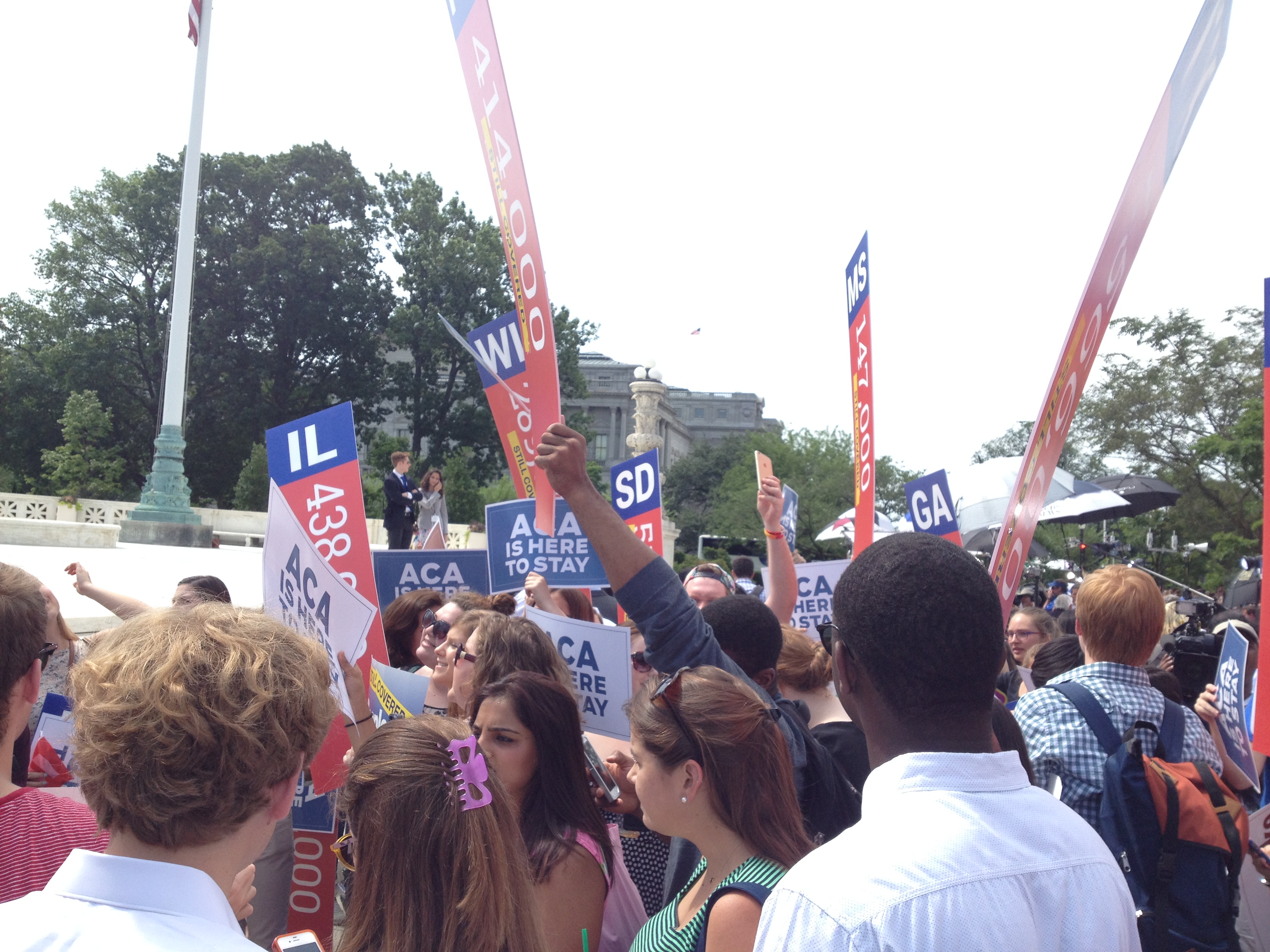WASHINGTON – In a 6-3 ruling, the U.S. Supreme Court upheld the subsidies that 41,766 Montanans use to pay for their health insurance, focusing on the law’s intent rather than sloppy wording in the reform legislation.
“The Affordable Care Act contains more than a few examples of inartful drafting,” Chief Justice John Roberts said, to laughter in the courtroom. But the real issue, Roberts said, was the high court’s responsibility “to avoid the type of calamitous result that Congress plainly meant to avoid.”
At stake in Montana – one of 34 states using the federal exchange instead of its own – was health insurance for the 41,766 people who rely on the subsidies to pay for their plans. The subsidy allowed each individual to pay, on average, $116 per month for health care coverage, according to a report from the Department of Health and Human Services about the period from November 2014 to February 2015.
The Montana state legislature opted not to set up a state exchange and to use the federal exchange instead.
Sen. Jon Tester, D-Mont., supported the opinion, which was written by Roberts.
“Access to affordable health insurance is critical to the health of our families and communities,” he said in a statement. “The Affordable Care Act is not perfect, but dismantling it without a plan to fix it is reckless, and today the Supreme Court recognized that.”
Sen. Steve Daines, R-Mont., and Rep. Ryan Zinke, R-Mont., did not address the ruling directly, but spoke instead about President Barack Obama’s health care law.
“Taking care of our neighbors and staying healthy should not be a partisan issue,” Zinke said in a statement. “We all agree there will need to be some level of help for folks who face difficult situations, but Obamacare simply does not work for the vast majority.”
Daines echoed Zinke.
“Obamacare is a D.C.-driven solution that is not working and I’m going to continue to work to repeal it and to put in place policies that drive toward more affordable health care, providing better patient access and putting the patient first.”
Daines signed on as a cosponsor of a GOP plan intended to serve as an alternative to the Affordable Care Act, which was passed in 2010. That bill would eliminate the individual and employer mandates for insurance, but maintain existing coverage and subsidies through 2017. The Obama administration said the president would not sign the bill if Congress passed it.
Montana Insurance Commissioner Monica Lindeen joined Tester in applauding the ruling.
“Uncertainty in insurance is not a good thing, and today’s decision allows my office, consumers and the health insurance industry a level of certainty about our market in Montana,” she said in a statement.
At the White House Thursday, Press Secretary Josh Earnest said the president was “pleased, relieved and not particularly surprised with this outcome,” calling the ruling a straight-forward decision.
In a dissenting opinion, Justice Antonin Scalia said that individual subsidies were what the federal government offered states as a way to incentivize them to set up their own exchanges. The ruling undermined that incentive, Scalia said.
In a further dig at the ruling, Scalia suggested the court was taking on too great a role.
“We really should start calling this law SCOTUScare,” he joked.
Lucy Ren also contributed to this story.

